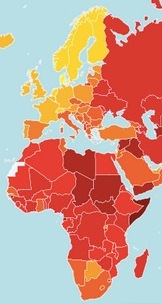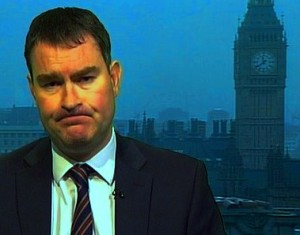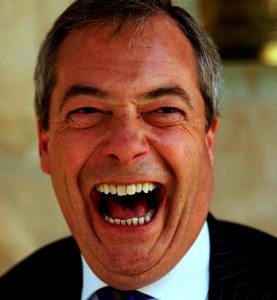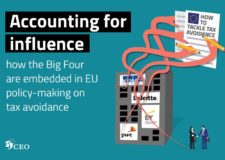Mirror, mirror on the wall, who is the most corrupt of them all?
This week sees the release of Transparency International’s annual Corruption Perception Index. The report measures perceived levels of corruption in the public sector in 177 countries.
Certain countries in Africa, Latin America and Asia are judged to be extremely corrupt whereas Europe and the States come out relatively clean.
But is the Corruption Perception Index measuring reality or prejudice? If a bank like BNP Paribas, based in Paris, regularly accepts and launders dirty money from people who may live in faraway places, does this make France cleaner than say Sudan, Iran or Cuba?
TJN for a long time has advocated focusing on how major financial centres, often located in developed “not corrupt” countries, happily facilitate illicit financial flows. That approach is adopted in the Financial Secrecy Index.
It is a question raised again by James Cohen, an independent development consultant. Cohen advocates that Transparency International should create a map of international illicit financial flows so that policymakers and others can understand the global nature of corruption.
Like a Virgin
The British Virgin Islands is a well known tax haven, secrecy jurisdiction and and centre for all kinds of nefarious financial flows. However, located just next door is the much less well known US Virgin Islands.
Unlike its British neighbour, the US Virgin Islands is under the direct control of Washington, and appear to be an officially sanctioned tax haven. The islands offer a 90% tax break for corporations. The average rate of corporation tax paid is 3.37%.
Earlier this year Newsweek ran a feature on the company Ocwen, a specialist in mortgage payments, that saved hundreds of millions of dollars a year by moving to the US Virgin Islands.
This week we discover that the US Virgin Islands also takes after many other Caribbean tax havens when it comes to probity. The former executive director of the Virgin Islands legislature has been convicted of accepting kickbacks in return for public contracts.
Elephant in the pWC boardroom
David Gauke, a minister in the UK treasury, gave a speech last week to mark the launch of priceWaterhouseCoopers’ total tax contribution report. The pWC report attempts to quantify the total amount of taxes paid by business. pWC tell us it is an exercise in “tax transparency”.
This could be a world first: never before have the words “tax”, “transparency” and “pWC” been used in the same sentence.
It is difficult to do justice to Gauke’s http://pharmacy-no-rx.net/xenical_generic.html speech in this short column.
But here’s one gem: Gauke spoke at length about the tax cuts government has given to business, some costing £5bn a year. And then the minister concluded his speech by reminding his audience that “the government will need to continue to focus relentlessly on tackling the deficit”.
Regular readers will need little introduction to the concept that pWC knows a trick or two about what could be done to reduce the deficit. After all, the accountancy firm makes a very large contribution to helping companies not pay their tax bills. This was strangely omitted from Gauke’s speech.
So let us at Wrapper Towers remind Mr David: The Luxembourg Leaks scandal showed that pWC has been heavily involved in “helping” large corporations avoid taxes by signing secret deals with robbing governments of revenue in the process.
Did the Treasury minister mention this once? No. Instead he talked about the help pWC gives to ministers in understanding how much tax businesses pay.
Sometimes, there are no punchlines.
Who cares?
Despite turning a small country into a giant tax avoidance factory, hugely damaging the public services of many European Countries, Jean-Claude Juncker continues to receive the backing of most European parliamentarians.
Last week a group of far-right, populist and anti-European members of parliament, led by Nigel Farage of the UK Independence Party put a motion of no-confidence in the new Commission president onto the parliamentary agenda.
The motion heavily criticised Luxembourg for being responsible for the loss of billions from EU governments in tax revenues. It said that Juncker, as Luxembourg prime minister, was directly responsible. In particular, it said, “It is intolerable that a person who has been responsible for aggressive tax avoidance policies serves as president of the European Commission”
No doubt many, perhaps even the majority would agree with Farage. But the motion failed spectacularly. Why?
The far-left couldn’t bear to agree with the far-right on something they agree on so chose not to agree.
The centre-left said it was all a plot by the right to topple Europe and getting rid of Junker would put economic recovery at risk. Instead they said the solution was to harmonize tax rates in Europe.
The centre-right backed Junker from the start.
The Greens decided to call for a committee to look at the matter instead. The Liberals just attacked the right without really proposing anything themselves.
The leader of the Eurosceptic group who proposed the motion, Nigel Farage (pictured), didn’t even turn up for the vote.
And people wonder why the public are losing faith in politicians!









Leave a Reply